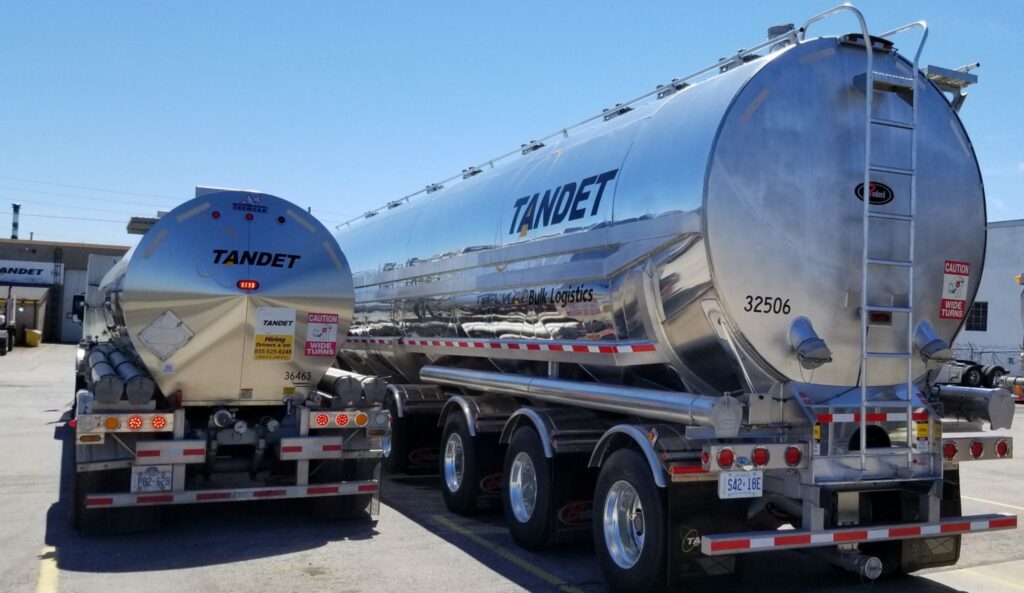Trucking executive outlook: Scott Tilley, Tandet Group
As 2022 comes to an end, TruckNews.com reached out to several trucking industry executives to ask about the biggest challenge their fleets will face in the coming year, and how they plan to address these issues.
In this instalment, Tandet Group of Companies president Scott Tilley offers his insights.

Q1: What is the single greatest challenge that your business will face in 2023?
The biggest issue the trucking industry faces for 2023 is – there are too many issues!
This is causing a very significant levels of stress and uncertainty within our teams. These issues include:
- operating older trucks, because new truck supply is limited;
- trucks getting “stuck” in the shop because the supply chain is messed up still (parts availability is pinched);
- inflationary pressures on pricing and wages;
- limited good driver availability to seat our trucks;
- reduced activity levels due to expected recessionary impacts;
- shifts in distribution patterns for customers as the world supply chain shifts (Covid restrictions, people availability, production snafus);
- sudden load disruptions from customers affected by the supply chain issues;
- significant swings in fuel pricing and uncertainty in oil/fuel supply causing delays in catching up to costs (due to a war half the world away);
- unpredictable fuel pricing which is spawning new fuel surcharge models (which are more complicated and not understood by customers that are implementing them, they just like the “noise” in them, without a clear indication of how/if they really work);
- increased use of logistics/invoice payment services by customers, which can take six to 18 months to “normalize”;
- lack of personnel at border crossings, delaying drivers and scheduling efforts;
- continued downloading of traditional customer tasks to the carrier’s staff, thinking this shifting costs “nothing”;
- limited/unavailable access to FAST enrolment centers because they too are having hiring issues;
- Green initiatives – that needto be addressed – to move to a more eco-committed service offering with the ultimate target of 100% carbon-free (full electric, hydrogen, renewable diesel, hydrogen hybrid, others);
- Accessing the re-fueling infrastructure and time constraints once a direction is set;
- Driver Inc’s continued growth with minimal/non-existent intervention by authorities. It leverages an uninformed driver population, penalizing the drivers, to the benefits of the business.
This does not include a number of smaller, specific issues, unique to our individual businesses.
Recently added to these challenges is the “pending” acute issue of the newly implemented federal regulation that has added the management pressure of juggling 15 days of potential paid medical and personal leave. This is not a cost concern, as it is eventually fixed by rate offsets. This is potentially a operational nightmare that shuts down operating assets as there are not enough drivers today. This simply compounds all the other challenges, putting one more issue on the table for 2023. It feels like the government is just piling on.

Q2: What are some of the steps you are you taking to address that challenge?
Each of these items on their own represent a challenge on a day-to-day basis. Each requires attention and a management of expectations. Customer expectations: delivering quality services, on time, at a fair price. Driver expectations: treat us fairly and consistently, so we can schedule our lives well, paying us fairly for what we do. Technician expectations: let us schedule the shop and keep the equipment running safely – don’t pressure us to move “too fast”. Admin expectations: despite the chaos, please make everything flow properly.
Some of these things are not completely wrong. It is the “all at once” challenge we have to work through. Drivers face pressure on the road, crossing the border, dealing with challenges of being away from home – for which they are now paid better, due to recent pay rate increases across the industry. But these challenges add pressures not fixed by more pay, and at times they truly need a paid break from it – to help family or get medical relief for themselves. Many have always provided this by choice. But these new mandated changes – across the board for federal carriers – could potentially remove up to 5% more of the current capacity from the market. There are not more drivers to fill these gaps, so this could cause more daily dispatch adjustment challenges. Imagine the issues this one change could cause.
To remain a viable, safe and effective service to the Canadian economy, trucking will need to address the issues caused by these increased pressures for both the people aspects and the costs associated with them. And we will need to perform despite these challenges. We will. As we always have in the past. But in this faster moving world – where we, as an industry, move the most freight to the most places, every day – our biggest challenge will be to address all these big issues – concurrently.
Have your say
This is a moderated forum. Comments will no longer be published unless they are accompanied by a first and last name and a verifiable email address. (Today's Trucking will not publish or share the email address.) Profane language and content deemed to be libelous, racist, or threatening in nature will not be published under any circumstances.